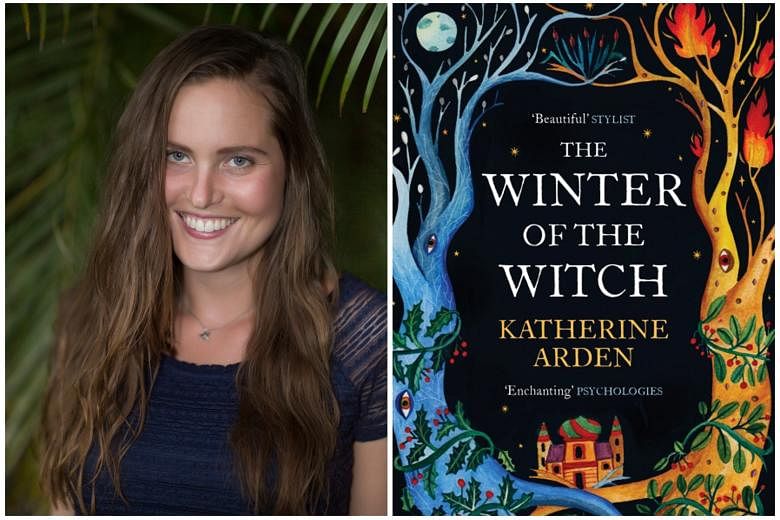FICTION
THE WINTER OF THE WITCH
By Katherine Arden
Del Rey/Paperback/ 371 pages/$29.95/Books Kinokuniya
4 stars
The Winternight trilogy by American writer Katherine Arden is rich with the enchantment of a classic fairy tale.
But despite being a fantasy set against the historical backdrop of mediaeval Russia, it feels attuned to contemporary concerns.
The Winter Of The Witch, the final book in the trilogy, opens with a witch hunt and can only be resolved, in a way, by addressing toxic masculinity. Yet none of this messaging gets in the way of a riveting yarn awash in the thrill of magic.
Arden has created a captivating heroine in Vasilisa Petrovna - Vasya for short - an irrepressible young woman who walks a fine line between worlds.
There is the human world, where the family who love her would rather see her secluded in a tower than riding around the country dressed as a boy. There is the world of the chyerti, spirits in Russian folklore, whose powers wane as more people eschew the old ways in favour of the new Christian faith and with whom Vasya has deeper roots than she knows.
In the course of The Bear And The Nightingale (2016) and The Girl In The Tower (2017), Vasya has gone up against Medved the Bear, a powerful chaos demon; forged an alliance and had an on-off romance with his brother, the winter king Morozko; and inadvertently set Moscow on fire while trying to save it.
Because of the last incident, her own people want her burned at the stake. It is not Morozko, powerless with the advent of spring, who comes to her aid but the Bear, now unbound and intent on destruction.
Vasya must retrieve Morozko - via a detour through her own mysterious heritage - and save Russia not just from the Bear, but the invading Tatars. The book's conclusion dovetails historically with the Battle of Kulikovo in 1380, in which Russian forces united under the command of Prince Dmitry of Moscow against the Tatar hordes.
Arden draws beguilingly on the old-school delights of magic: armies of the undead, horses that transform into birds and a road that leads through all the midnights of the world at once.
But she also subverts the cyclical nature of violence and unsettles the binaries so favoured by fairy tales - dark and light, good and evil, victory and defeat.
The result is darker than a fairy tale ending is wont to be, but deeply satisfying.
If you liked this, read: Spinning Silver by Naomi Novik (Del Rey, 2018, $32.05, Books Kinokuniya), a feminist twist on the Rumpelstiltskin fairy tale in which a Jewish moneylender boasts that she can turn silver into gold and a race of ruthless ice fairies interpret this literally.


